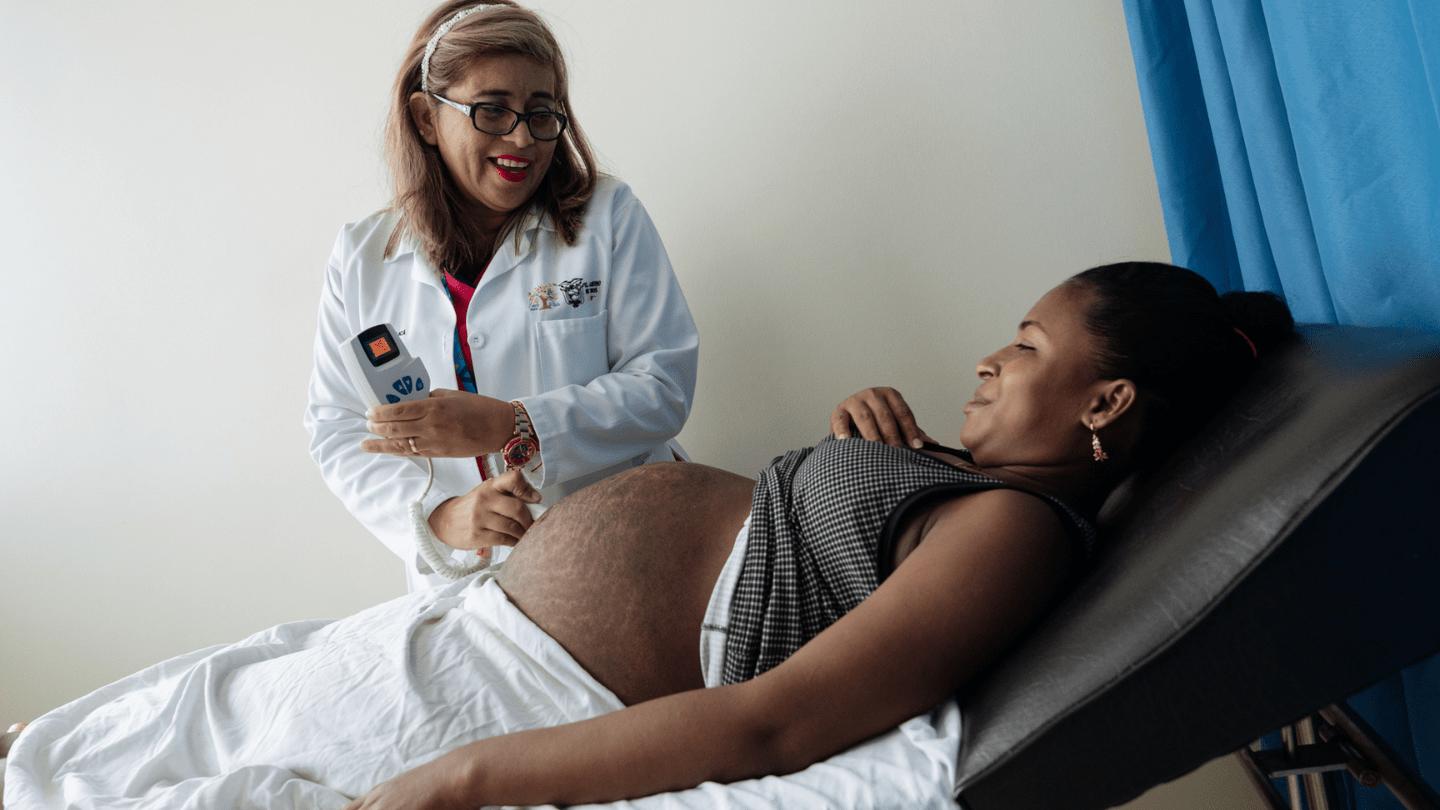Professional and traditional ethnic midwives, midwifery technicians, and obstetricians are far more than healthcare providers – they are guardians of life.
Women like Mamá Tere, Ana Choque, and Ana Edixa carry ancestral wisdom, uphold cultural traditions, and care for women and their communities.
Together with professionals like Licensed Midwife Leti and midwifery technician Angela Gonzáles, they provide essential care to women in remote and vulnerable areas, ensuring the well-being of both mothers and newborns during pregnancy, childbirth, and postpartum.
A Commitment to Health
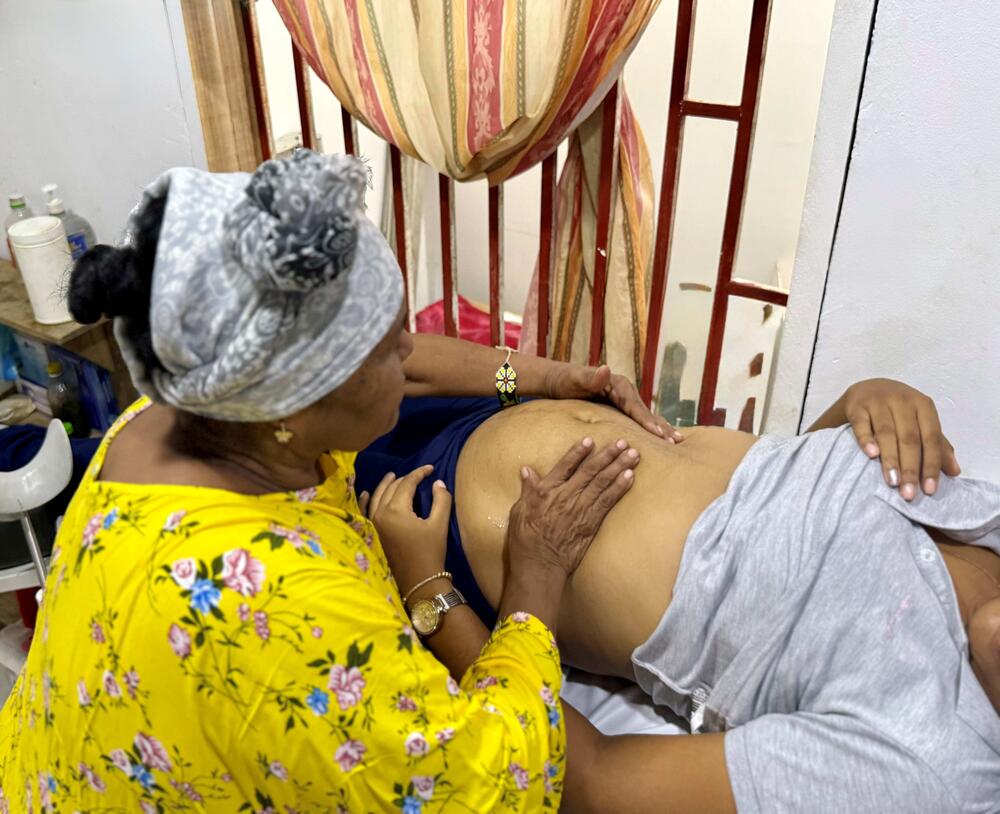
TUMACO, Colombia - "My day-to-day, from dawn to dawn, is to support and help. I've attended over a thousand births and helped save the lives of many mothers and people. I do it out of love for women, for babies, and for my community."
Teresa Vásquez, known locally as "Mamá Tere," is an ethnic traditional midwife from Tumaco, in Colombia’s Nariño department. She co-founded La Cigüeña, an association now made up of about 500 midwives, apprentices, and knowledge keepers. Her work is critical in areas where healthcare services are either absent or extremely limited, often due to barriers such as armed conflict.
According to Colombia’s National Institute of Health surveillance system, in 2024, Nariño recorded a maternal mortality ratio of 88.5 deaths per 100,000 live births — nearly double the national average (43.8) and higher than the regional average (77).
"We began organizing because we saw too many maternal deaths, and too many babies left motherless. When a mother dies, it doesn’t end there – six or seven children are left behind with an uncertain future. I’ll remain a midwife until my last day, to prevent those deaths, to protect life and my territory."
First, Respect for Interculturality
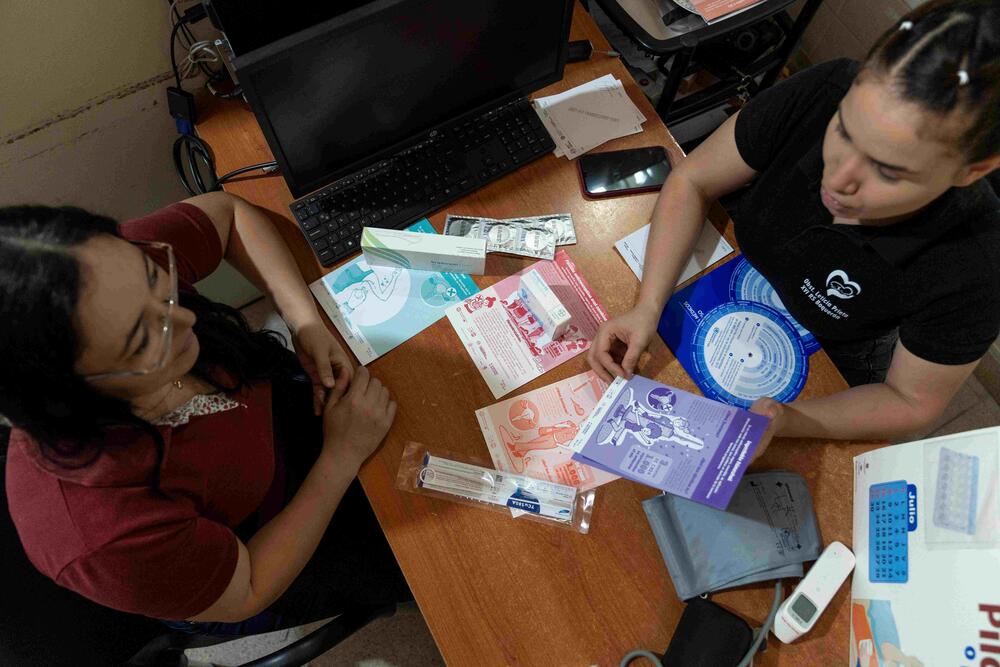
CHACO PARAGUAYO, Paraguay - Obstetrician and professional midwives are a key part of the healthcare system in Paraguay, especially in challenging regions like the Chaco, known for its fragile ecosystem, water scarcity, and extreme summer temperatures above 45°C.
These harsh conditions pose additional risks for pregnant women, such as preterm birth, stillbirth, and low birth weight – challenges obstetrician Leticia Prieto knows all too well. A 1°C increase in temperature during the week before delivery is linked to a 6% higher risk of stillbirth.
Originally from the capital, Leticia began working at the Family Health Unit in Cayin'ô'ĉlim, an Indigenous Nivaclé community also visited by Angaité and Enxet peoples. It was a challenge to adapt and understand that diverse worldviews demand tailored approaches.
“To care for Indigenous pregnant women, we must respect interculturality. They have traditions we, as obstetric professionals, must acknowledge and value. They know how their bodies respond, what birthing positions they prefer, and their right to be accompanied by family,” says Leti, as she is affectionately called in the communities.
A Bridge Between Two Worlds
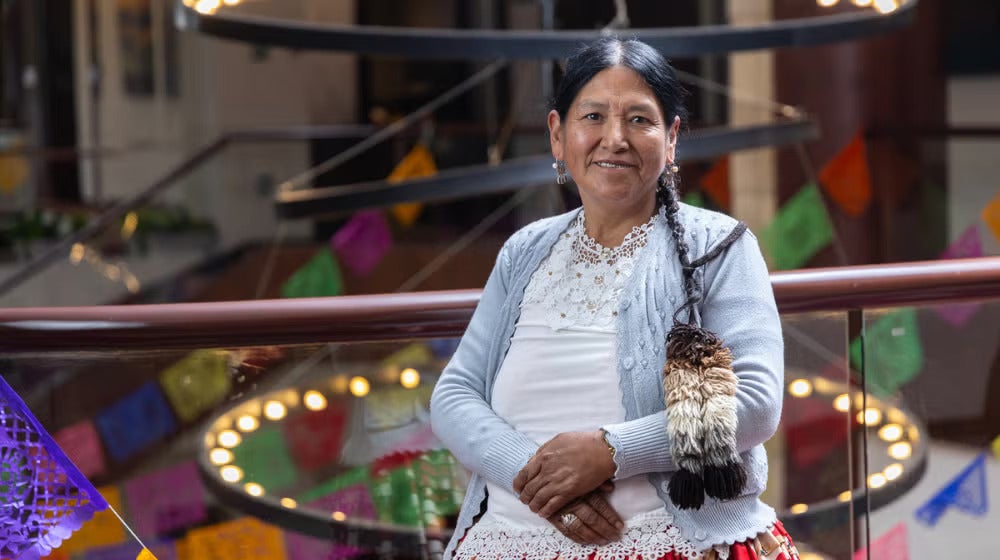
LA PAZ, Bolivia - Having witnessed first-hand women dying in childbirth, traditional midwife Ana Choque understands the critical need for timely health decisions.
“Many times, even though the danger signs are clear, the family is reluctant to take the woman to a health centre. I see it every day: The husband, the mother-in-law, the relatives – sometimes they say it’s not necessary [to go to the hospital], that the situation is ‘normal’.’”
A champion of maternal health in Bolivia, Ms. Choque works with UNFPA to train midwives and advocate for the use of modern medical practices, together with traditional knowledge.
Maternal mortality remains a persistent issue in Bolivia. Daniel Rojas, head of UNFPA’s maternal health division in Bolivia, said it is essential to encourage the use of modern medicine together with traditional practices. The combination of the two systems would allow women to access more comprehensive and culturally-sensitive care, he added.
One of the greatest challenges Ana faces is reaching pregnant women in remote areas. Journeys can take hours by motorcycle or horseback – a delay that can quickly become life-threatening, especially in emergencies.
Ana’s commitment extends beyond individual care – she’s a community leader among midwives. In Bolivia, traditional midwives have long played a vital role in improving access to qualified maternal health care, especially in rural and Indigenous communities.
Guardians of Safe Motherhood in Remote Areas
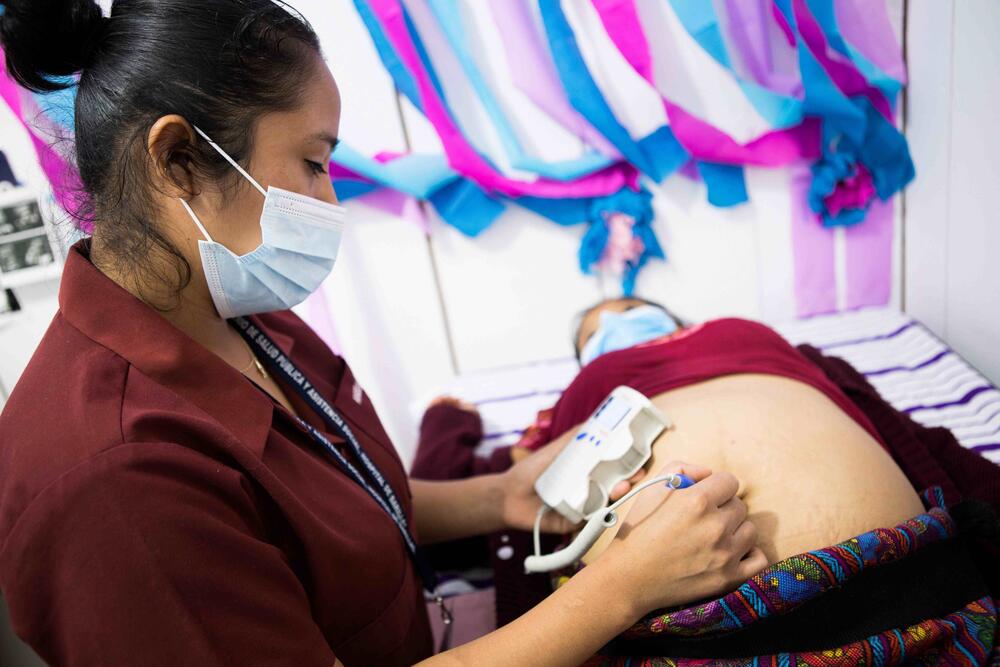
HUEHUETENANGO, Guatemala - “I decided to study midwifery when I realized that women in my community needed medical care nearby and in their own language,” says Angela Gonzáles in her native language Q'anjob'al.
Angela works at the hospital in Santa Cruz Barillas, a municipality in the Huehuetenango department – home to great linguistic diversity, with about 65% Indigenous population and several Mayan languages spoken, including Q'anjob'al, Mam, Akateko, and Chuj.
She is one of 112 certified midwifery technicians in Guatemala. Her comprehensive training covers pregnancy counseling, labor support, and postnatal care, offering continuous, culturally sensitive care in the patient’s language – which not only improves communication but also builds trust and empathy.
The Midwifery Technician Training Program began in 2018 through a joint initiative involving multiple actors. It is offered by Universidad Da Vinci with support from the Ministry of Public Health and Social Assistance. As of 2023, 112 midwives had graduated from campuses in Huehuetenango, Quiché, and Alta Verapaz. UNFPA has supported the program since 2010 by helping revise and update the curriculum.
Ancestral Knowledge That Saves Lives
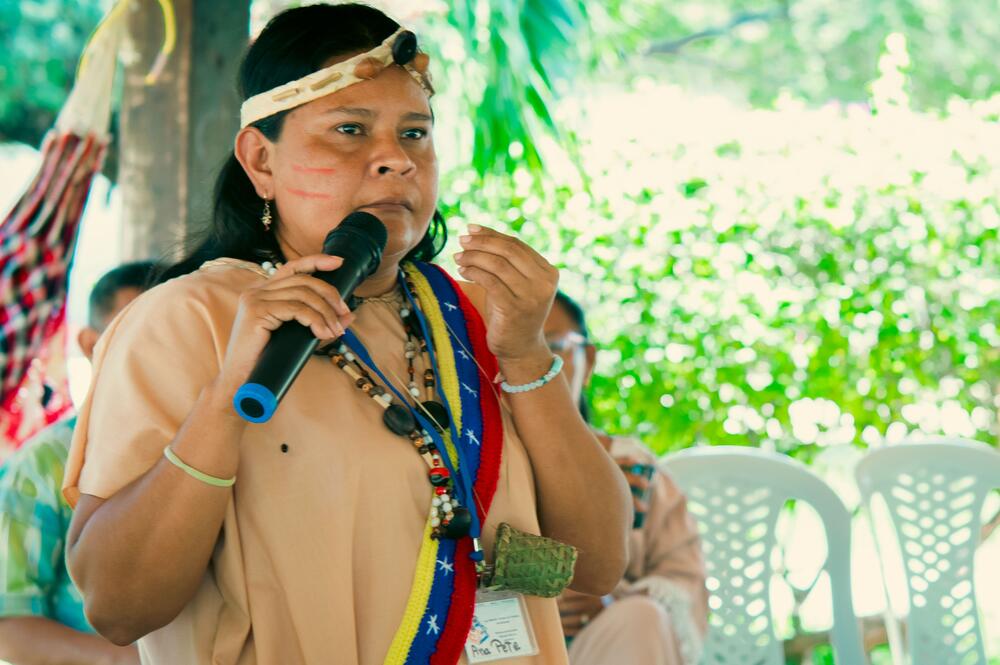
ZULIA, Venezuela - “First, I thank God. Second, our ancestors. Third, my mother, who passed down the wisdom of midwifery. She is a midwife, and thanks to her, I’ve become who I am,” shares Ana Edixa Pete.
Just like her, many Indigenous midwives from the Wayúu and Yukpa peoples preserve ancestral knowledge that saves lives
in remote, hard-to-reach areas, often far from health centers.
Recognizing their vital role, UNFPA, in collaboration with Venezuela’s University of Health Sciences and other organizations, promotes knowledge exchanges to strengthen Indigenous midwives’ practices, encourage inter-community dialogue, and ensure public health personnel respect traditional birth care methods.
“For me, joining gatherings with other midwives is very important because I learn many things I didn’t know. We share ideas and cultures, and I come away with new knowledge,” Ana Edixa explains.
Dr. Marisol Alvarado, UNFPA’s Sexual and Reproductive Health Program Officer in Venezuela, explains that these exchanges foster mutual recognition between community leaders and healthcare professionals.
The project emphasizes shifting from a medicalized model to a woman-centered one, where childbirth is a dignified, safe experience that includes Indigenous midwives as key players.
A Cost-Effective Solution
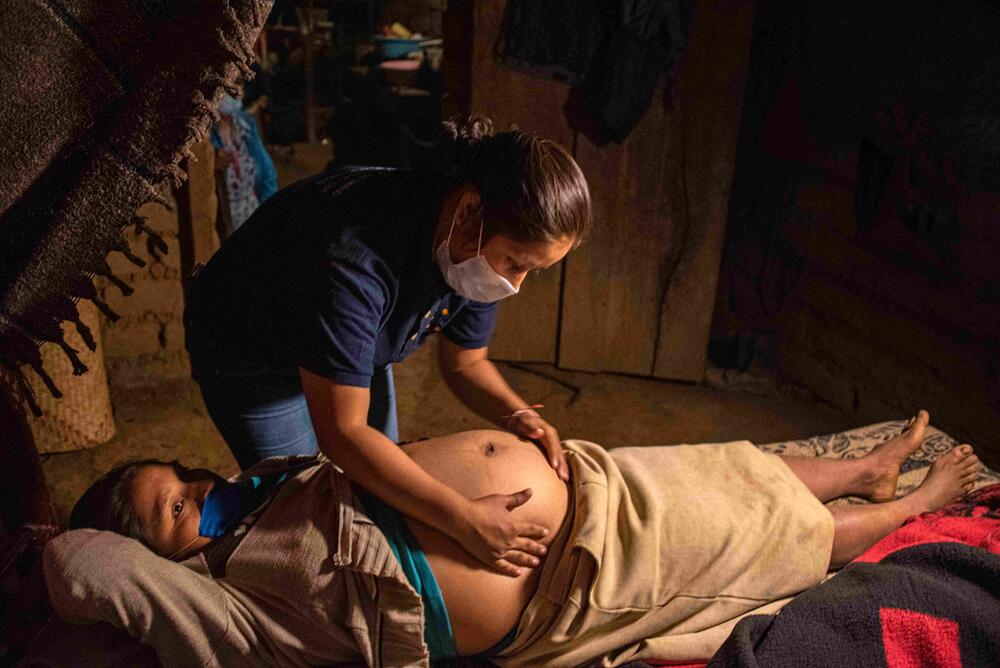
Currently, the maternal mortality rate in the region is 77 deaths per 100,000 live births. Globally, maternal mortality dropped by 40% between 2000 and 2023. However, Latin America and the Caribbean saw the smallest decline – just 17%.
To address this, UNFPA supports all countries in the region with strategies to eliminate preventable maternal deaths. These include training both traditional and professional midwives, incorporating intercultural practices into health systems, and bringing maternal health services closer to remote communities.
Recent studies suggest that over 60% of maternal and neonatal deaths could be prevented if universal access to midwife-led care were achieved by 2035. Midwives play a vital role in preventing complications, minimizing unnecessary medical interventions, and delivering personalized, comprehensive care — improving outcomes for both mothers and babies while easing the burden on overstretched health systems.
In a time when countries must make the most of limited resources, midwife-led care models offer a cost-effective, high-impact, and sustainable solution. Studies show that every dollar invested in midwifery yields up to 16 times the return in economic and social benefits.

